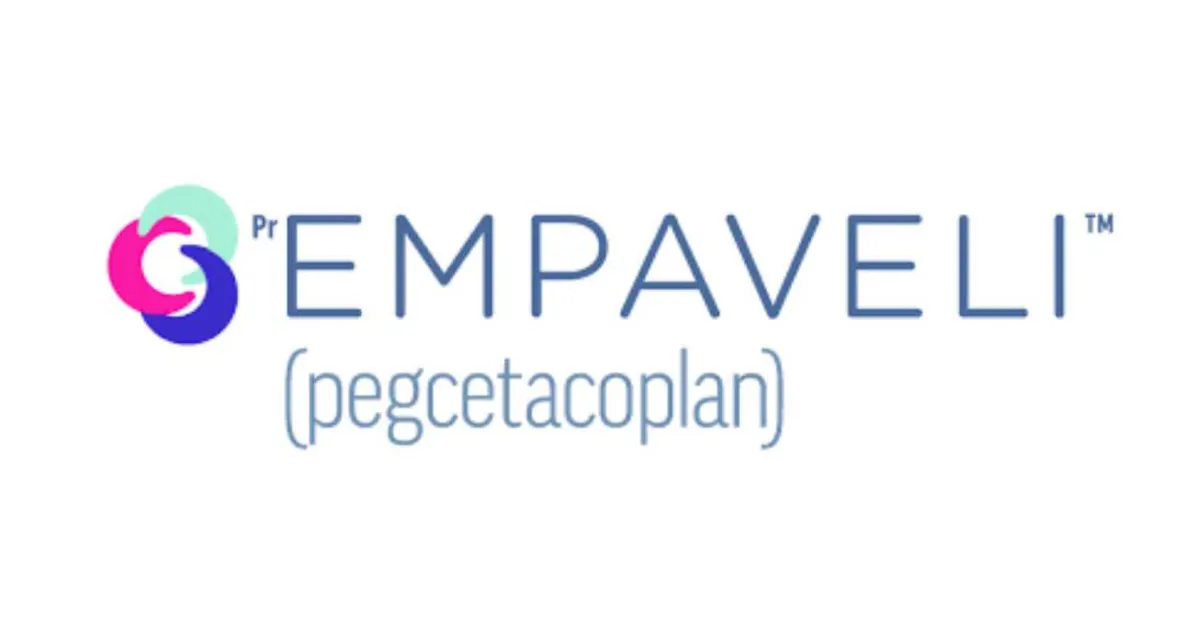The U.S. Food and Drug Administration (FDA) approved a new indication for Empaveli (pegcetacoplan) injection to treat adults and children aged 12 years and older with C3 glomerulopathy (C3G) or primary immune-complex membranoproliferative glomerulonephritis (IC-MPGN), two rare kidney diseases that can cause kidney failure. This will be the first medication approved for children with C3G and the first medication approved for the treatment of adults and children with primary IC-MPGN.
C3G and primary IC-MPGN are caused by abnormal overactivity of the complement system, a part of the immune system, leading to buildup of immune deposits in the glomeruli, the parts of the kidneys that filter out waste and excess water. These deposits can cause kidney inflammation and damage. Approximately one-half of patients with C3G and primary IC-MPGN develop kidney failure within five to 10 years of diagnosis, requiring a kidney transplant or lifelong dialysis. More than one-half of these patients who receive a kidney transplant will have disease recurrence in the transplanted kidney, and many will lose the transplanted kidney because of disease recurrence.
Empaveli works by inhibiting part of the complement system. Its effectiveness in reducing proteinuria (an abnormal amount of protein in the urine) was demonstrated in a randomized, double-blind, placebo-controlled trial in patients aged 12 years and older with C3G or primary IC-MPGN who had not received a kidney transplant, or patients with recurrent C3G after a kidney transplant. In this trial, 124 patients were randomly assigned to Empaveli or placebo administered twice weekly as a subcutaneous (under the skin) infusion for 26 weeks.
The primary efficacy endpoint assessed the percent change in proteinuria after six months of treatment. At 26 weeks, there was a 68% reduction in proteinuria from baseline in the Empaveli group compared to placebo. In addition, over the 26 weeks of treatment, Empaveli reduced the loss of kidney function compared to placebo.
Patients should not take Empaveli if they have hypersensitivity to pegcetacoplan (the active ingredient) or to any of the excipients (inactive ingredients) listed in the drug label. Empaveli increases the risk of serious and life-threatening infections caused by encapsulated bacteria. Therefore, patients with an unresolved serious infection caused by encapsulated bacteria should not take Empaveli. Patients should also complete or update vaccination for encapsulated bacteria at least two weeks before the first Empaveli dose unless the risks of delaying treatment outweigh the risks of developing a serious infection. Health care providers should monitor patients for early signs and symptoms of serious infections and evaluate immediately if infection is suspected. Because of this serious risk, Empaveli is available only through a restricted program under a Risk Evaluation and Mitigation Strategy.
The most common side effects of Empaveli in patients with C3G or primary IC-MPGN were infusion site reactions, fever, nasopharyngitis (common cold symptoms), influenza, cough, and nausea.














